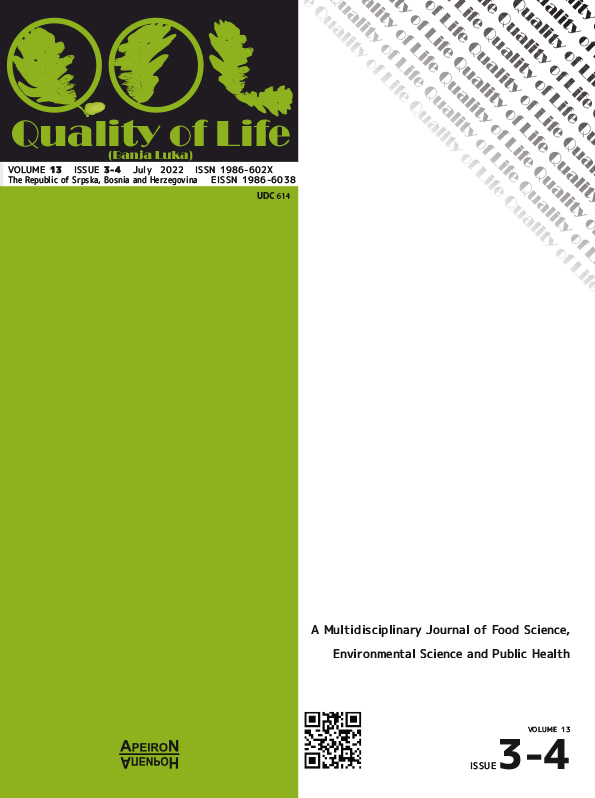The Effectiveness of Health Educational Materials in the Prevention of Non-Communicable Diseases
DOI:
https://doi.org/10.7251/QOL2203105SAbstract
Non-communicable diseases (NCDs) are the leading causes of morbidity, disability, and mortality among the world’s population. In this research, we aim to determine the knowledge about the risk factors for NCDs, as well as socio-demographic differences in the effectiveness of health education materials in disease prevention. Instrument was prepared according to methodological guidelines for population health risks survey (Eurostat, 2018) and knowledge and attitudes related to NCD questionnaire survey. Sample size included 210 participants of both genders (Nmale= 105, Nfemale= 105) systematically selected, residents of Belgrade, Republic of Serbia, who did not have diagnosed chronic non-communicable diseases and used services at primary health care centre Zvezdara. Research results indicate that 27% of all participants had one or more health educational activities in the last six months. More than two thirds of respondents (71%) know that tobacco usage is the leading cause of cardiovascular diseases, but 54,8% know that cause malignant diseases. More than two thirds of respondents know that inadequate nutritional habits, consumption of industrial products and sweets and low vegetable intake cause cardiovascular diseases and more than half of them know that inadequate nutritional habits causes malignant diseases. Statistically significance difference between groups of participants based on level of education are obtained in attitudes towards the effectiveness of health education material in the prevention of malignant diseases (F= 3.396, p< .05), diabetes (F= 3.611, p< .05) and respiratory diseases (F= 3.483, p< .05) and socio-economic differences in the use of printed and video materials in the prevention of NCDs. Effectiveness of health education materials through preventive activities improve health and reduce risks for NCDs.
